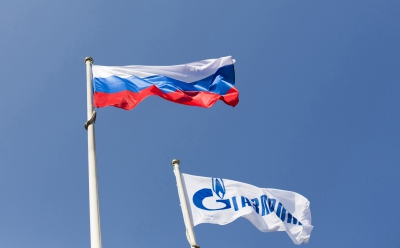Gazprom's Lithuanian Victory: a Test Case?
Russia’s Gazprom was cheered by its victory last week over Lithuania at the Arbitration Institute of the Stockholm Chamber of Commerce (SCC) in their dispute over gas prices between 2004 and 2012. It ended a long run of rulings against it ever since the 2008 slump, as European utilities took their suppliers to arbitration and won collectively billions of dollars of refunds and more flexible contract terms.
Gazprom's win can be interpreted as a good result with respect to the still-ongoing dispute at the court, this time against Ukraine, some Lithuanian experts believe. Ukraine is suing Gazprom over a take-or-pay gas purchase contract and at the same time Gazprom is suing Ukraine over the ship-or-pay gas transit contract.
“I am sure that Stockholm arbitration was a case of big stakes for Gazprom and it is evident that Gazprom will use the decision as a precedent (however ill fitted) at least for two purposes,” says Inga Martinkute, a lawyer at Lawin, Lithuania’s legal firm which represented Lithuania in Gazprom’s complaint against the Baltic state on its enactment of the law on unbundling of gas transmission and supply activities.
“First, it will be used as a precedent for Gazprom’s gas price disputes with Ukraine which involve some similar circumstances. Second, as evidence that Gazprom did not abuse its dominant position in the Baltic market for its negotiations with the European Commission regarding the antitrust probe,” Martinkute told NGE.
The Stockholm tribunal’s decision, she says, was “surprising” and “undermines” the credibility of the arbitration as an impartial dispute resolution system.
“The tribunal totally ignored contractual provisions that were achieved by difficult and prolonged negotiations during privatization procedure, ie “fair price taking into account the conditions of the energy market of the Republic of Lithuania” and the aim of ensuring “the long-term and reliable gas supply to gas consumers (including alternative sources) at the lowest cost,” the lawyer said.
In her words, the tribunal rejected the plaintiff’s argument that a fair price should be calculated at the level of cheapest substitute, or that a fair price should be the western Europe market price minus transportation costs, or at least the price that it charged neighbouring states for gas.
“While rejecting all the arguments, the tribunal failed to state positively what the level of fair prices should be. In doing so the tribunal ignored the basic rule of Lithuanian contract law that even if a price is not agreed by the parties at all, the court is obliged to establish the price in accordance with the market price. It is especially the case when parties provided guidance on what needed to be taken into account when calculating changes to the price,” the legal expert said.
Russian expert: precedents irrelevant in arbitration
Disagreeing, Mikhail Krutikhin, a partner of RusEnergy, a Russian consulting company specializing in monitoring and analysis of the oil and gas industry of the former Soviet Union and a renowned critic of Gazprom and the Kremlin, told NGE that the Russian monopoly cannot expect to use the Stockholm ruling against Gazprom in the dispute with Ukraine.
“Arbitration courts, like the one in Stockholm, do not follow a precedent, as a matter of fact. Such arbitrations review complaints on a case-by-case basis, ie individually,” Krutikhin emphasized. “The Stockholm institute has delayed court deliberations several times and it remains unclear yet when the ruling in the Gazprom-Ukraine gas dispute can be announced.”
Asked about the court’s ruling in the dispute between Lithuania and Gazprom, the Russian expert said he was not surprised by the outcome of litigation as the chances were “50-50. It’s very hard in a market economy to prove antitrust breaches, or that the gas was too expensive. Note that in the deliberations neither party questioned the-then existing gas price formula on which the trade was based. What Lithuania argued about were Gazprom’s prices in general. That the Stockholm arbiters passed such a ruling shows their fairness and independence,” Krutikhin said.
Wait and see
Meanwhile, Juozas Augutis, a respected Lithuania’s energy expert, believes that the Stockholm decision may cast “shadows” on other similar court dealings in the Stockholm arbitration, too. “The practice of a precedent is deeply embedded with a court system and the institution in Stockholm may be no exception to the rule,” he told NGE.
Asked about the impact of the ruling on the EC’s ongoing antitrust probe into Gazprom’s gas trade patterns in eastern European markets, he implied the investigation is of “another type” than that between Lithuania and Gazprom in Stockholm.

(image credit: Gazprom)
In April 2015 after preliminary investigations into allegations against Gazprom, the EC sent it a statement of objections. It said Gazprom was breaking EU antitrust rules by pursuing an overall strategy to partition central and eastern European gas markets, for example by reducing its customers’ ability to resell the gas cross-border. This may have enabled Gazprom to charge unfair prices in certain member states. Gazprom may also have abused its dominant market position by making the supply of gas dependent on obtaining unrelated commitments from wholesalers concerning gas transport infrastructure.”
Augutis said: “As the EC probe is mostly about the unbundling of gas sector-related activities, its outcome will be most likely similar to the EC’s ruling in case of Gazprom against Lithuania over the gas trade activities separation a while ago in which Lithuania, note, came out victorious,” Augutis said.
The expert notes that Lithuania is trying to “overwhelmingly” show the Stockholm verdict in “a bright light” although Lithuania can have only a “psychological” satisfaction, he believes. “Imagine if the court had ruled in favor of Lithuania and ordered Gazprom to pay it $1.6bn as Lithuania had been demanding. The sum is nearly one-tenth of Gazprom’s estimated earnings before taxes last year. We would have tons of money to invest into local energy infrastructure,” Augutis says.
Linas Jegelevicius


